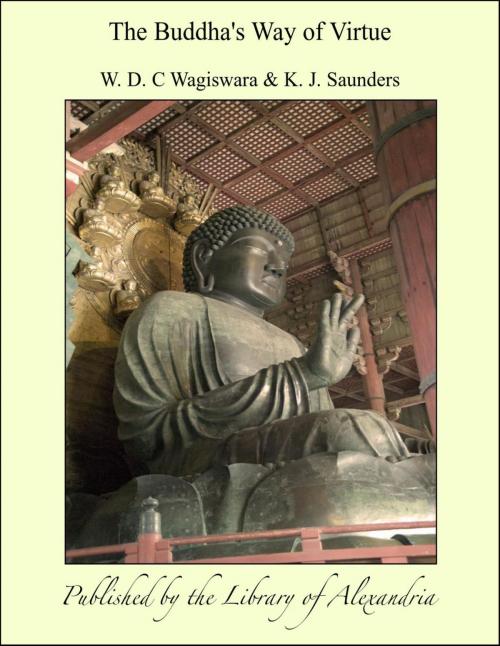The Buddha's Way of Virtue
Nonfiction, Religion & Spirituality, New Age, History, Fiction & Literature| Author: | W. D. C Wagiswara & K. J. Saunders | ISBN: | 9781465573032 |
| Publisher: | Library of Alexandria | Publication: | March 8, 2015 |
| Imprint: | Language: | English |
| Author: | W. D. C Wagiswara & K. J. Saunders |
| ISBN: | 9781465573032 |
| Publisher: | Library of Alexandria |
| Publication: | March 8, 2015 |
| Imprint: | |
| Language: | English |
The Dhammapada was accepted at the Council of Asoka in 240 B.C. as a collection of the sayings of Gautama; yet it was not put into writing until some generations had passed, and probably contains accretions of later date. However that may be, there is no doubt that it breathes the very spirit of the Teacher, and it has always been used in Buddhist lands as a handbook of "devotion" or meditation, in whose solemn precepts men hear the voice of Sakyamuni summoning them to the life of contemplation, of strenuous mind-culture. The world, it tells them, is without permanence or purpose, other than that of expiation; the body is "a nest of disease" and the seat of "desire"; the mind itself is subject to decay, and capricious, easily led away after false pursuits.
The Dhammapada was accepted at the Council of Asoka in 240 B.C. as a collection of the sayings of Gautama; yet it was not put into writing until some generations had passed, and probably contains accretions of later date. However that may be, there is no doubt that it breathes the very spirit of the Teacher, and it has always been used in Buddhist lands as a handbook of "devotion" or meditation, in whose solemn precepts men hear the voice of Sakyamuni summoning them to the life of contemplation, of strenuous mind-culture. The world, it tells them, is without permanence or purpose, other than that of expiation; the body is "a nest of disease" and the seat of "desire"; the mind itself is subject to decay, and capricious, easily led away after false pursuits.















